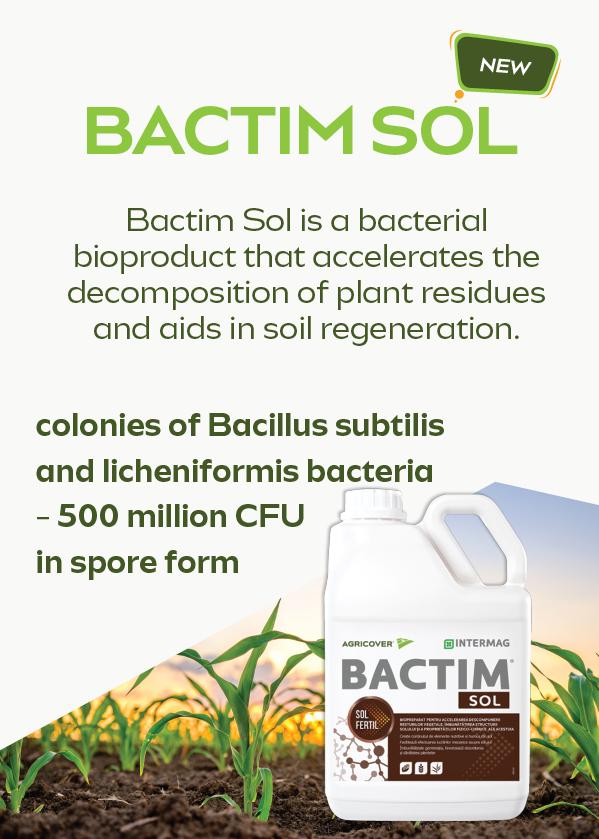
GET THE OFFER QUICKLY
Bactim Sol - Regenerative treatment
Benefits

Bacterial bioproduct that accelerates the decomposition of plant debris.

It helps to regenerate the soil (both degraded and intensively farmed).

It contains bacteria in the form of spores on a nutrient substrate that have a longer shelf life and are more resistant to the action of environmental factors than 'live bacteria'.

Improves over time the physico-chemical characteristics of the soil (texture, structure, cation exchange capacity, aero-hydric regime).

Ensures rapid release of nutrients contained in the embedded biomass.

Provides plants with extra phosphorus.


Product features

The two strains of the Bacillus genus contained in BACTIM SOL have a high capacity to break down cellulose and thus decompose straw and root system debris quickly and efficiently over a wide temperature range (4-60 degrees Celsius).

The breakdown of cellulose results in a large amount of glucose, which is an excellent food source for other soil microorganisms, increasing soil biodiversity.

The release of nutrients from decomposed crop residues increases the content of essential nutrients available in the soil. As a result of cellulose decomposition under aerobic conditions the following are formed: colloidal mucilages, gelatinous substances, uronic acids and dyes involved in humus formation and soil structure.

Rapid decomposition of plant debris decreases the likelihood of overwintering pathogens, thus lower infection pressure and greater effectiveness of plant protection programmes.